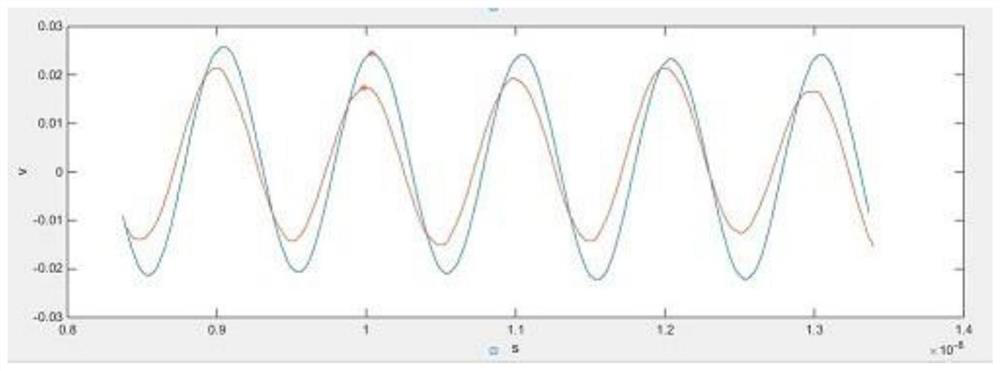A Method for Testing Chirp Parameters of Electro-optic Intensity Modulator Based on Phase Comparison
A technology of electro-optical intensity modulation and phase modulator, which is applied in the field of microwave photonics and can solve problems such as inability to measure chirp parameters
- Summary
- Abstract
- Description
- Claims
- Application Information
AI Technical Summary
Problems solved by technology
Method used
Image
Examples
Embodiment 1
[0053] Measure the 3GHz chirp parameters of the electro-optical intensity modulator, and adjust the frequency of the microwave signal source to f 1 =3GHz, microwave signal source 2 generates frequency f 2 =1.93GHz, f s =70MHz, satisfying the fixed value f i =(f 1 -f 2 )-f s = 1GHz. Only the 1GHz fixed electrical signal is filtered out through the fixed electrical filter without other harmonic components, and the time domain waveform of the signal is extracted through the oscilloscope. figure 2 Correspondingly adjust the bias voltage twice to filter out the change of the time-domain waveform of the 1GHz signal.
[0054] First calculate the splitting ratio γ of the upper and lower arms of the MZM. Adjust the DC bias to the maximum bias point and the minimum bias point, and measure the maximum value P of the MZM output optical power through an optical power meter max and minimum P min . In the experiment, the extinction ratio of the electro-optic modulator used was mea...
PUM
 Login to View More
Login to View More Abstract
Description
Claims
Application Information
 Login to View More
Login to View More - R&D
- Intellectual Property
- Life Sciences
- Materials
- Tech Scout
- Unparalleled Data Quality
- Higher Quality Content
- 60% Fewer Hallucinations
Browse by: Latest US Patents, China's latest patents, Technical Efficacy Thesaurus, Application Domain, Technology Topic, Popular Technical Reports.
© 2025 PatSnap. All rights reserved.Legal|Privacy policy|Modern Slavery Act Transparency Statement|Sitemap|About US| Contact US: help@patsnap.com



